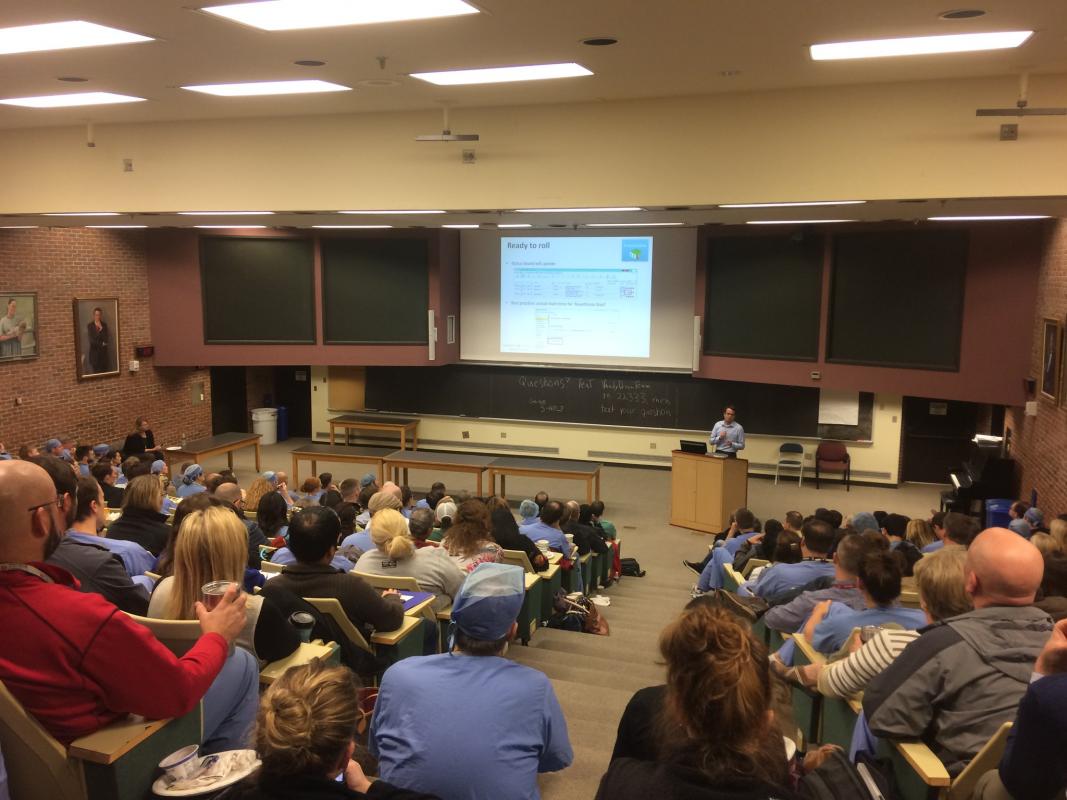
Vanderbilt University Medical Center launched a new computer system called eStar on Thursday, Nov. 2, 2017. This launch was called EpicLeap, and VUMC, including the Department of Anesthesiology, worked for over a year to ensure the transition would be as seamless as possible.
“I think we can say across the entire department that we’re just so proud of how people saw this as a challenge,” said Brent Dunworth, DNP, MBA, APRN, CRNA, Chief CRNA and Director of Advanced Practice, Anesthesiology.
Dunworth said there was a lot to prepare for. He said nurse anesthetists took on a big task, as six were selected to be clinical trainers based on interest, leadership and teaching skills.
Dunworth explained a lot of training fell on the department’s clinical team. “We wanted to make sure the first impression of Epic to our providers was a good one,” he said.
Dunworth said anesthesiology had 35 super-users assigned to the department at the launch, but the department was catching on so quickly that by Monday, Nov. 20, 2017, only eight super-users were needed to cover the whole department.
Dunworth explained the department has reached a point where people are getting comfortable and have begun exploring, sharing what they have found to be the best practices, enhancing workflow and asking questions. “We are moving quicker along the timeline of accepting our new system than we expected to,” he said.
In terms of how eStar has affected patient care, Dunworth said, “What we do is take g
reat care of patients, and that hasn’t changed at all. It’s just how we document that.”
The key point to the success of eStar is that everything is in one place, Dunworth explained. When patient history gets introduced into the patient’s record, everyone is able to share that and it doesn’t have to be reentered.
As for the next steps after the launch of eStar, Dunworth said it is time for polishing. He explained that within one week all the major issues were gone or fixed, so now it is time to start looking at wants and needs for the future.
Brian Rothman, MD, and Jon Wanderer, MD, MPhil, are leading what is called optimization, which is gathering feedback from providers and prioritizing what needs to be worked on first. Dunworth explained that making patient care better is a top priority.
“Our success in anesthesiology was directly attributed to the attitudes of our department members and providers,” Dunworth said. He elaborated that people knew this was going to be a mountain to climb over and everybody had the right mindset to figure this out together.
“It is really a testament to who we are as a department. We are a group of folks who are ready for the challenge of solving a problem. I think we are problem solvers by nature, as shown by what we do. EpicLeap tested that, and we certainly came out on top.”